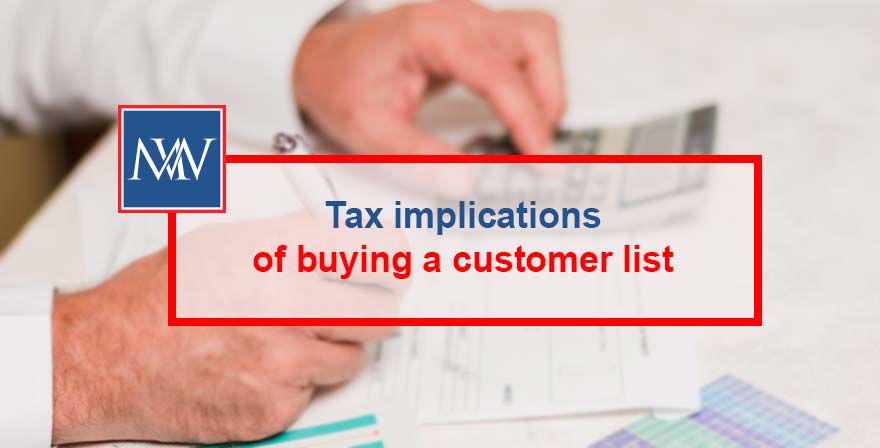
Tax implications of buying a customer list
Many businesses begin by buying a customer list from another similar business, sending out marketing adverts rather than waiting to build their own client base via recommendation. A business can also expand by buying a customer list. However, a customer list is usually more than just a list of customer names and contact details. It is essentially the relationship with a customer being bought or transferred, encompassing customer preferences and contact history. These lists are intangible assets, generally long-term and derive their value from a business’s intellectual or legal rights even though written down or stored in digital form, which also means that the purchaser is buying part of the goodwill of the business.
The tax rules differ depending on whether the purchasing business is a self-employed business (or partnership) or a company.
Self-employed purchaser
Unfortunately, unincorporated businesses can only claim tax relief against income to the extent that the intangible assets being purchased relate to specific processes, not customers. Therefore, buying a customer list will not be tax deductible against revenue for the purchaser. However, where a deduction against revenue is not possible, the cost will be a capital item potentially available to reduce any capital gain when the business is eventually disposed of. Disposing of a customer list may attract business asset disposal relief as being a business asset if the conditions for a claim are met. The unincorporated seller of a list will be taxed on the amount received as ‘other income’.
Corporate purchaser
Buying such a list by a company comes under the ‘intangible assets’ tax regime as goodwill. Customer lists created post-1 April 2019 are specifically included within the corporate intangibles regime, treated as part of goodwill and /or relevant assets. The tax rules state that relief is available for ‘an intangible fixed asset that consists of information which relates to customers or potential customers of a business or part of a business.’
A client list may be purchased at the same time that a business or part of a business is sold. Where such assets are acquired as part of a business, they should only be capitalised separately in the balance sheet at cost separate from goodwill where their value can be measured reliably. The rate of relief is fixed at 6.5% per annum and is partially restricted should the total amount of the company’s expenditure on qualifying intellectual property, multiplied by six, be less than its expenditure on the relevant assets acquired. The amount of relief is reduced accordingly if the expenditure is greater.
No relief is available where the company has acquired the relevant asset from a related individual or a partnership where one of the partners is a related individual. Consequently, a company cannot write down the cost of goodwill and customer related intangibles acquired on the incorporation of a business, irrespective of whether the asset is already within the intangibles regime or would otherwise have qualified for the 6.5% writing down relief. This is subject to exceptions where the firm acquired the relevant asset from a third party.
For more information, Book a Free Consultation
Need Accountancy Support?
For information on bespoke training, or if you have any other questions for Makesworth Accountant, please fill in your details below




















 150
150